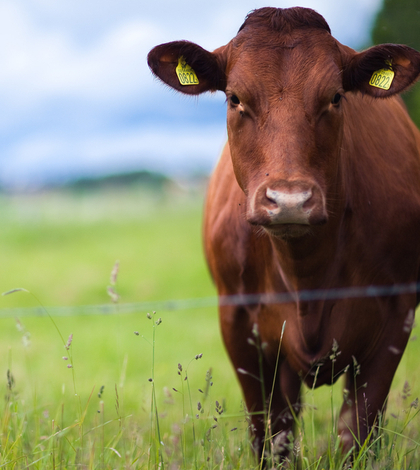A proposed $3.75 million fine against a now shuttered National Beef California slaughterhouse will be considered at a public hearing on Oct. 27 by the Colorado River Basin Regional Water Quality Control Board. The exact time and place of the hearing is yet to be determined but will be announced by the Water Board’s advisory team. The advisory team acts as a neutral advisor to the Water Board in administrative civil liability cases.
The investigation and subsequent complaint against National Beef began in early 2013 when the Water Board’s prosecution team filed a complaint against the city of Brawley for chronic violations of its wastewater discharge permit and violation of an earlier cease and desist order. The complaint against the city identified National Beef’s discharge as a significant factor in the city’s violations.
The initial Water Board order required the city of Brawley to develop and implement a pretreatment program to deal with industrial discharges. Subsequently, the Water Board fined the city $1 million in September 2013 for violations of its permit and a cease and desist order.
The federal Clean Water Act prohibits an industrial user from introducing into a publicly owned treatment facility any pollutant(s) which cause “pass through” or “interference” with the treatment plant. The current civil liability complaint against National Beef alleges that the company violated federal pretreatment standards and requirements by introducing pollutants into the city of Brawley’s wastewater treatment plant, causing and/or contributing to chronic violations of the city’s federal discharge permit. National Beef avoided over $13 million in compliance costs according to the complaint’s allegations.
In January of this year, National Beef announced that it would be closing the plant, which employed some 1,300 people, citing “a declining supply of fed cattle available for the Brawley facility” as the primary reason in closing the plant. National Beef California, LP, is a wholly owned subsidiary of National Beef Packing Company, LLC, of Kansas City, Missouri, which in turn is a subsidiary of Leucadia National Corporation, Inc. The plant closed permanently on May 23.
The slaughterhouse had been generating approximately 12,800 gallons per day of discharge through its unlined ponds to the local groundwater. Additionally, some 1.62 million gallons per day of industrial wastewater was discharged to the city’s wastewater treatment plant.
Effluent from the city plant is discharged into the New River which is a tributary to the Salton Sea. The New River is a state priority for cleanup because it is severely polluted by sources in Mexico and the Imperial Valley. Both the New River and the Salton Sea are “Waters of the United States” and are listed as impaired waters under the Clean Water Act.
Prior to both the closure of the National Beef slaughterhouse and a March 20 cleanup and abatement order issued the Water Board, the two entities had been working cooperatively on developing a permit for onsite discharges of wastes by the slaughterhouse. The cleanup and abatement order had directed National Beef to decommission its onsite wastewater treatment facilities but no Water Board requirement had yet been adopted or imposed. With the decision to close the plant, the discussions and permit were no longer needed.
When the Water Board meets on Oct. 27 the allegations, proposed penalty, and all of the relevant evidence and testimony it receives will be presented at the hearing. The Water Board will subsequently consider whether to affirm, reject or modify the proposed Administrative Civil Liability, including whether to assess additional liability on a $10 per gallon basis, or whether to refer the matter to the Attorney General for recovery of judicial civil liability.
In the meantime, Jose L. Angel, the Board’s Assistant Executive Officer, indicated that “We continue to work closely with National Beef staff to ensure the slaughterhouse’s onsite treatment facility is decommissioned properly, and its onsite ponds are closed in compliance with the Water Board’s directives.”
Once the time and place of the Oct. 27 hearing are determined the information will be posted on the Water Board’s web site at http://www.waterboards.ca.gov/coloradoriver/.
 California Water News Daily Your Source For Water News in California
California Water News Daily Your Source For Water News in California


